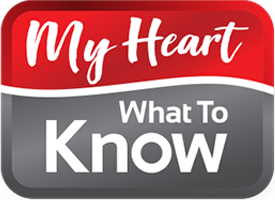By Melinda D. Maryniuk, MEd, RD, CDCES
1) Be prepared. Come to the appointment with a clear idea of the issues you want to speak with your doctor about. Since most people don’t get a lot of time with their physician, it’s best to prioritize your two most important questions or issues you want to cover. And it’s okay to take the lead and ask your questions first thing as soon as your doctor walks into the room.
If you’re feeling stuck, here’s a list of questions you can ask yourself prior to the appointment… the answers may be something you want to share with your physician.
- What has been causing you the most frustration with your health lately?
- Are you having any issues with your medication? (Side effects, insurance issues, or remembering to take them)
- Are there any outside stressors that are interfering with your health? Work? Family? Finances? Other illnesses? Sleep?
- How worried about your heart health are you on a daily basis?
2) Bring backup. It is important to bring your notes, supplies, and support with you to every appointment you can. Things in the list below may be helpful:
- Your blood pressure monitor and a written log of your blood pressure results.
- A 3-day record of your recent food intake and activity.
- A list of your medicines, or bring the Rx bottles (especially those that may have been prescribed by another doctor). Include any supplements or over-the-counter products that you take on a regular basis.
- A list of questions you want to remember to ask.
- A family member or friend who can be with you to listen, take notes, and be supportive.
3) Express your feelings and emotions. Sometimes at medical visits, we focus so much on the facts that we forget about the emotions. It’s okay and important to let your doctor know how you feel. Your feelings impact your overall health. It’s okay to ask for help.
4) Keep track. There is power in keeping a journal that can show you what’s happening with your health. Be sure to bring it with you to your appointment.
- Record lab results from your visits, including: A1C, blood pressure, cholesterol (LDL and HDL), and a kidney function test (albumin and creatinine).
- Include visit dates, doctor and educator names, and phone numbers.
- Record all medications you are taking and any allergies you have.
5) Expand your care team. Ask your doctor for recommendations (and a referral) for people who can help you manage your health such as a dietitian, a psychologist, exercise physiologist, or a support group. Support can make a big difference!
—
An important step towards better health for many people is reaching a healthier weight, which can reduce the risk of cardiovascular disease. To find a physician near you who specializes in weight management, click here.
—
All the information provided on this site is for educational purposes only and is not a substitute for professional medical advice, diagnosis, or treatment. My Heart – What To Know is not a healthcare provider or clinic. ALWAYS consult with a qualified healthcare provider regarding any questions you may have about a medical condition. Never disregard professional medical advice or delay in seeking it because of something you have read on this website. If you think you may have a medical emergency, call 911 or go to the nearest emergency room immediately. No physician-patient relationship is created by this website or its use.
This article was sponsored by Novo Nordisk Canada. All content is created independently by My Heart – What To Know with no influence from Novo Nordisk.

